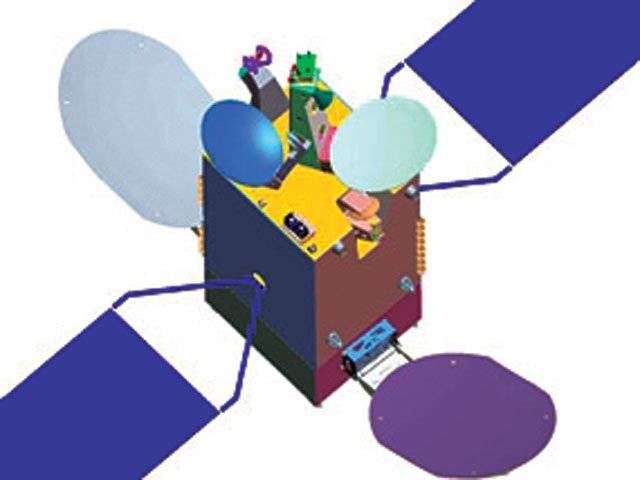BEIJING (INP) - Paksat-1R, a Pakistani geostationary and an advanced communication satellite, is due to be launched in space from a Chinese satellite launching site in Xichang city in the second week of August, depending on weather conditions. Paksat-1R will replace Paksat-1, which is going to complete its useful life this year. Paksat-1R is going to be a new symbolic development in Pakistan-China relations, as it will broaden the horizons of cooperation between the two countries, said Pakistans Ambassador to China Masood Khan. In an interview to mark the launch of Paksat-1R, the ambassador said that during Chinese Premier Wen Jiabaos visit to Pakistan in December last year, the two governments had decided to deepen cooperation in space science and technology. The satellite, Paksat-1R, is a big step in that direction, he said, adding, It will revolutionise the use of broadband Internet, digital television broadcasting and mobile telephony. It will spur our economy, strengthen the education and health sectors and help us with disaster preparedness and response. Khan held that such cooperation with China would help Pakistan move towards self-reliance. Tracing the history of cooperation between the two countries in the realm of space science, the ambassador said that it goes back to the 1990s, when Pakistan launched its first low earth orbit satellite Badr-1. Since then, we had been enhancing our cooperation in space science and technology, he added. We are now looking at cooperation in remote sensing satellites. It is a long term project with many civilian uses. A remote sensing satellite will cover areas like agriculture, oceanography, disaster management and mitigation, crop monitoring, earth observation, water resources management, weather forecasting and urban planning. Such an application will have a direct positive impact on Pakistans socio-economic development. Expressing gratitude on behalf of the Pakistani nation to China for its support to Pakistan for developing its satellite industry, Khan said the Pakistan Space and Upper Atmosphere Research Commission (SUPARCO) had been establishing the necessary space technology infrastructure. We are developing common technology platforms with China. In the due course of time, he added, Pakistan would want to develop its spaceflight programme. The ambassador also said that leaders and professionals of the China Great Wall Industry Corporation (CGWIC), China Academy of Space Technology (CAST) and China Aerospace Science and Technology Corporation (CASC) were keen to extend full cooperation to Pakistan. They all are so positive, forthcoming and hospitable towards Pakistan. In this atmosphere, I am sure our cooperation will move from strength to strength, Khan said. He also said that it is our natural aspiration that a Pakistani astronaut aboard a Chinese spacecraft flies to the space. This is possible because Pakistan and China enjoy relations of trust and confidence, the ambassador added.
Saturday, April 20, 2024
Paksat-1R launch in China this week

Pak economy improving, funds will be provided on request: IMF
9:57 PM | April 19, 2024
Minister advocates for IT growth with public-private collaboration
9:57 PM | April 19, 2024
Judges' letter: IHC seeks suggestions from all judges
9:55 PM | April 19, 2024
Formula 1 returns to China for Round 5
9:05 PM | April 19, 2024
Germany head coach Julian Nagelsmann extends contract till 2026 World Cup
9:00 PM | April 19, 2024
A Tense Neighbourhood
April 19, 2024
Dubai Underwater
April 19, 2024
X Debate Continues
April 19, 2024
Hepatitis Challenge
April 18, 2024
IMF Predictions
April 18, 2024
Kite tragedy
April 19, 2024
Discipline dilemma
April 19, 2024
Urgent plea
April 19, 2024
Justice denied
April 18, 2024
AI dilemmas unveiled
April 18, 2024
ePaper - Nawaiwaqt
Advertisement
Nawaiwaqt Group | Copyright © 2024





